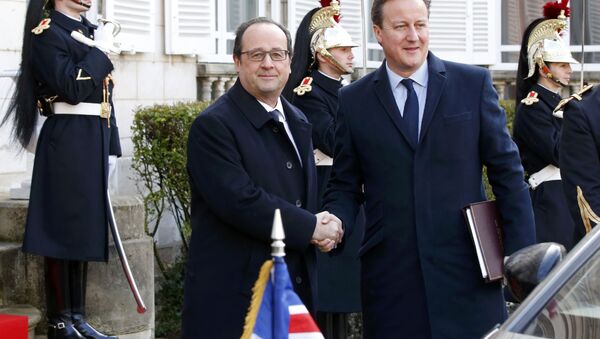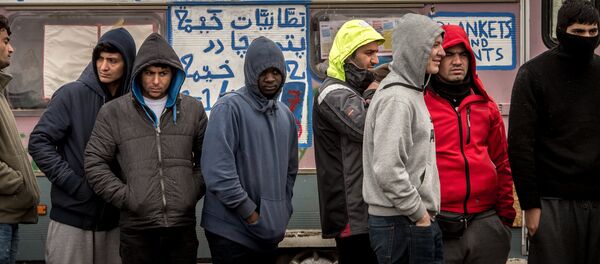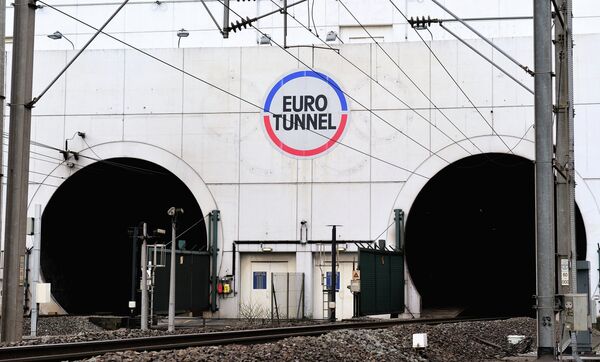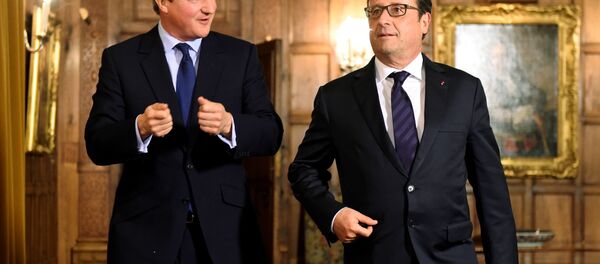Cameron is desperate to enlist the support of Hollande in his campaign to keep Britain within a "reformed" EU at the In-Out referendum he has called for June 23. Hollande has already said he wants the UK to remain within the union, but has also declared that the EU should not interfere with the single market nor the Eurozone.
#EUReferendum date approved by Parliament tonight. We have delivered our election pledge — the British people will have their say on 23 June
— David Cameron (@David_Cameron) 2 March 2016
The two leaders — who meet in Amiens, northern France, Thursday — will also have to resolve a row over border controls — sparked by the continuing situation in Calais, where thousands of migrants have been camped out for several years attempting to reach Britain via the Channel Tunnel or by ferry.
Calais ‘Jungle’ evictees block motorway in chaotic night clashes with French police (VIDEOS) https://t.co/V8Qz1mftN7 pic.twitter.com/2i9x5WUKbN
— RT (@RT_com) 1 March 2016
French Economy Minister Emmanuel Macron said Wednesday that Brexit would have serious implications for the UK's bilateral relationship with France, suggesting the special deal over border controls between France and the UK could be ripped up. "The day this relationship unravels, migrants will no longer be in Calais and the financial passport would work less well," he told the Financial Times.
His remarks fly in the face of those made recently by French interior minister Bernard Cazeneuve who said: "Calling for the border with the English to be opened is not a responsible solution. It would send a signal to people smugglers and would lead migrants to flow to call in far greater numbers. A humanitarian disaster would ensue."
Paris-London Border Agreements
The UK is not a member of the Schengen area — comprising 26 European countries who agreed to remove all border controls between their countries to allow for a borderless Europe and encourage the greater movement of people and goods. The UK is not alone in living outside Schengen; Ireland is not a signatory.
However, Britain's transport links with France — its nearest continental neighbor — put it in a unique position in Europe. Ahead of the opening of the Eurotunnel between France and the UK, London and Paris signed a special agreement to allow for French and British border guards to operate in each other's countries — an unusual variation on national sovereignty.
The Sangatte agreement — signed in 1991, ahead of the opening in 1994 of the Eurotunnel — allowed French border and immigration staff to check passengers before departure from the UK to France and for their British counterparts to do the same in France for departures to the UK.
Meanwhile, a similar agreement — known as the 'Treaty of Le Touquet' and signed in 2003 — allowed for similar arrangement to be put in place on the popular short-sea ferry services between Dover, in the UK and Calais and Dunkirk in France.
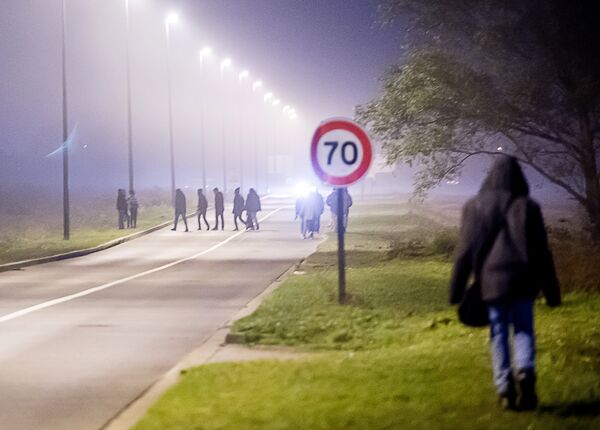
France has established immigration checkpoints at Port of Dover, where the French Border Police carries out immigration entry checks into the Schengen Area on passengers travelling to Calais or Dunkirk. More importantly, the UK has immigration points on French soil in Calais and Dunkirk. Importantly, this means that people refused entry to the UK remain on French soil.
This — in turn — has created the so-called "Calais jungle" in which thousands of migrants intent on reaching the UK via the Eurotunnel or by ferry — have congregated near the tunnel and ferry terminals, which has caused major issues between Paris and London and — more importantly — in the British media.
As Cameron and Hollande meet in Amiens Thursday, they will seek to reach consensus over what may happen to the special border arrangement in the event of a Brexit.

